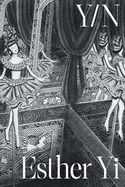 "As a society we've gotten stuck in binary thinking. You're either racist or you're not. You're sexist or you're not," said Michelle MiJung Kim, author of The Wake Up: Closing the Gap Between Good Intentions and Real Change (Hachette Go). "But we all fall in the messy middle."
"As a society we've gotten stuck in binary thinking. You're either racist or you're not. You're sexist or you're not," said Michelle MiJung Kim, author of The Wake Up: Closing the Gap Between Good Intentions and Real Change (Hachette Go). "But we all fall in the messy middle."
At the Wi2023 Tuesday breakfast keynote, Hannah Oliver Depp, founder and co-owner of Loyalty Bookstores, Washington, D.C., told Kim, "For 10 years in bookselling, I've been asked to speak about diversity." She'd started saying no, but then she read The Wake Up. "This is the book that I've been wanting to talk about. This speaks to the work of community building," Depp said. "That is what booksellers do. The reason we get tired and broken is that we don't push past the surface."
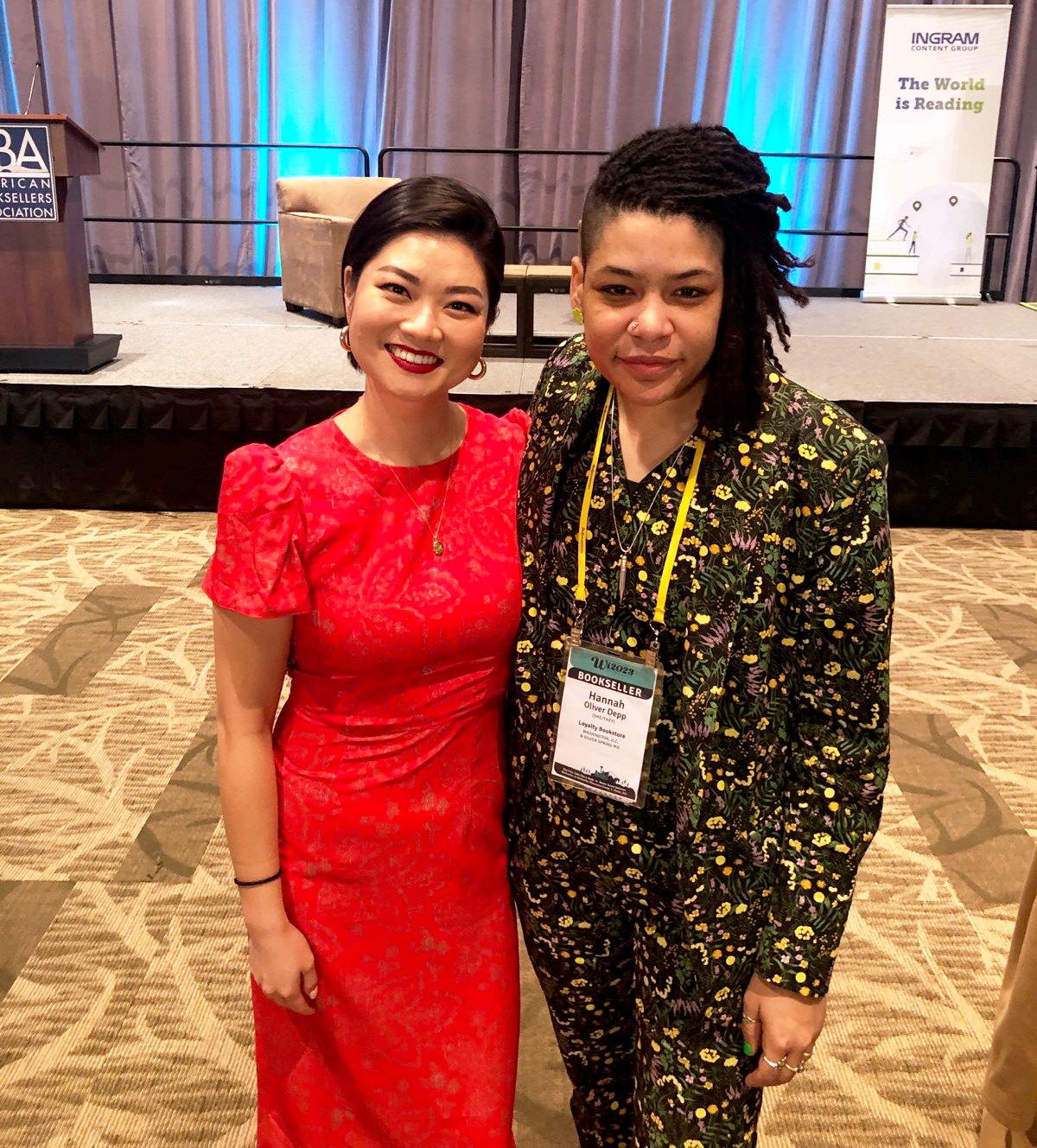 |
|
Michelle MiJung Kim and Hannah Oliver Depp
|
Kim was born and raised in South Korea and moved to the U.S. when she was 13. "I still remember the first day of middle school. A white boy came up to me and waved a banana, 'Do you know what this is?' he said, 'It's a ba-na-na.' The sense of powerlessness I felt, of not knowing the words." Kim described herself as a voracious reader in South Korea, but when she got to the U.S., she didn't know the language and she stopped reading. "I never dreamed I'd write a book. This moment feels sacred to me."
In order to earn enough money to bring her mother to the U.S. from South Korea, Kim became a management consultant, her first exposure to DEI work. She felt a "cognitive dissonance." From there, she moved to tech, thinking it had to be better; "the cognitive dissonance continued," she said.
"With surface allyship," Kim said, "People ask for best practices before the why." They focus on the "what": What can I do? They want a checklist. "As someone who loves a checklist," Depp said, "that's not where it happens. The magic happens person to person. The internal work of grounding comes first." Kim agreed that if we could dismantle racism with a checklist, we'd have done so by now. Diversity of all kinds--age, gender, race, culture, means greater profitability and greater return on investment. But too often, Kim said, "We do the work because 'it's the right thing to do,' which presents us as saviors rather than looking at where we are all complicit in the problem. The why that's important is that all of our liberation is tied together."
Depp asked, "How do we get beyond the knowing? Interpersonally, we are good. Why isn't it spreading at the industry level?" Kim pointed to the HarperCollins union strike as an example of this challenging work. "That was not an easy fight," she said. "We have to ask ourselves, 'What are we willing to give up to make the change happen?' What is the industry ready to give up to make the change happen? It doesn't have to be all or nothing," she continued, "Is it money? Is it time? Is it social standing? Just be honest so it minimizes the effect on marginalized people and the cynicism that grows out of broken promises."
Depp acknowledged that the composition of the audience of booksellers looked very different from when she started in bookselling a decade ago. These are steps forward. Yet there's more work to do. " 'Hiring for diversity'--That's not the issue," Depp said. "What happens when that person clocks in on their first day? Everything we do has intentionality. If you want to systemically change something, you have to look at the system." Depp asked Kim what people need to do about "the tensions and contradictions that erupt when people say, 'We'll have the hard conversations'?" Kim said change must go from the personal to the interpersonal to the organizational to the systemic. "We see ourselves as good people, but good people do harm all the time. We need to be accountable. I want us to build the capacity to be in the messy middle."
At the end of 2020, Kim burned out and was in a deep depression. She came to realize that although she was doing the work for the movement, she had been seeing herself as expendable. "If this work is not about our joy, our wholeness, our freedom, then what is it for?" she asked. "I need everyone to commit to creating the right conditions so the same people are not making the sacrifice."
When Kim moved to the U.S., her desire to read vanished. She dreaded reading aloud. She didn't want to be embarrassed. "I had an intense desire to assimilate," Kim said. "I wanted to fit in." When she published this book, she reclaimed her Korean name, given to her by her grandfather. She didn't want the book to go into the world without her Korean name.
When Kim's participation in a Black Lives Matter protest turned violent, with police officers deploying tear gas into crowds that included seniors and children, Kim turned to her friend and lifelong activist Kalaya'an Mendoza with her anger and sadness. He told her, "I love you more than they hate us."
As we all navigate the "messy middle," Kim asked that we "strive for progress not perfection.... Here's to being more alive, together." --Jennifer M. Brown
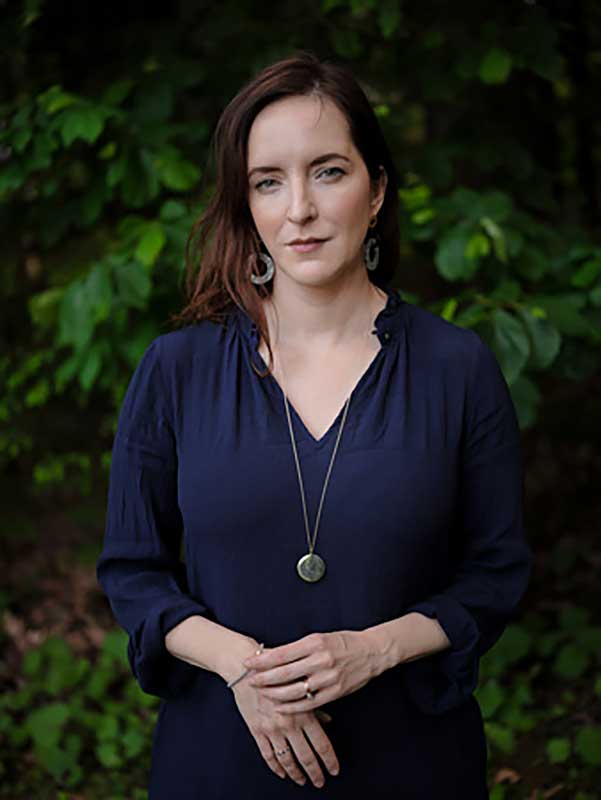 "Every event for every other one of my books has all been in or through independent bookstores. From the beginning, that’s who advocated for my books. I don't tend to look at sales on a granular basis anymore, but I could look and see the kind of digitized map of where books were selling. Later I realized it’s one or two independent booksellers in that area who make it happen. I continue to have experiences like that, where one bookseller in one store has handsold pancake stacks of a book.
"Every event for every other one of my books has all been in or through independent bookstores. From the beginning, that’s who advocated for my books. I don't tend to look at sales on a granular basis anymore, but I could look and see the kind of digitized map of where books were selling. Later I realized it’s one or two independent booksellers in that area who make it happen. I continue to have experiences like that, where one bookseller in one store has handsold pancake stacks of a book.




IPC.0204.S3.INDIEPRESSMONTHCONTEST.gif)




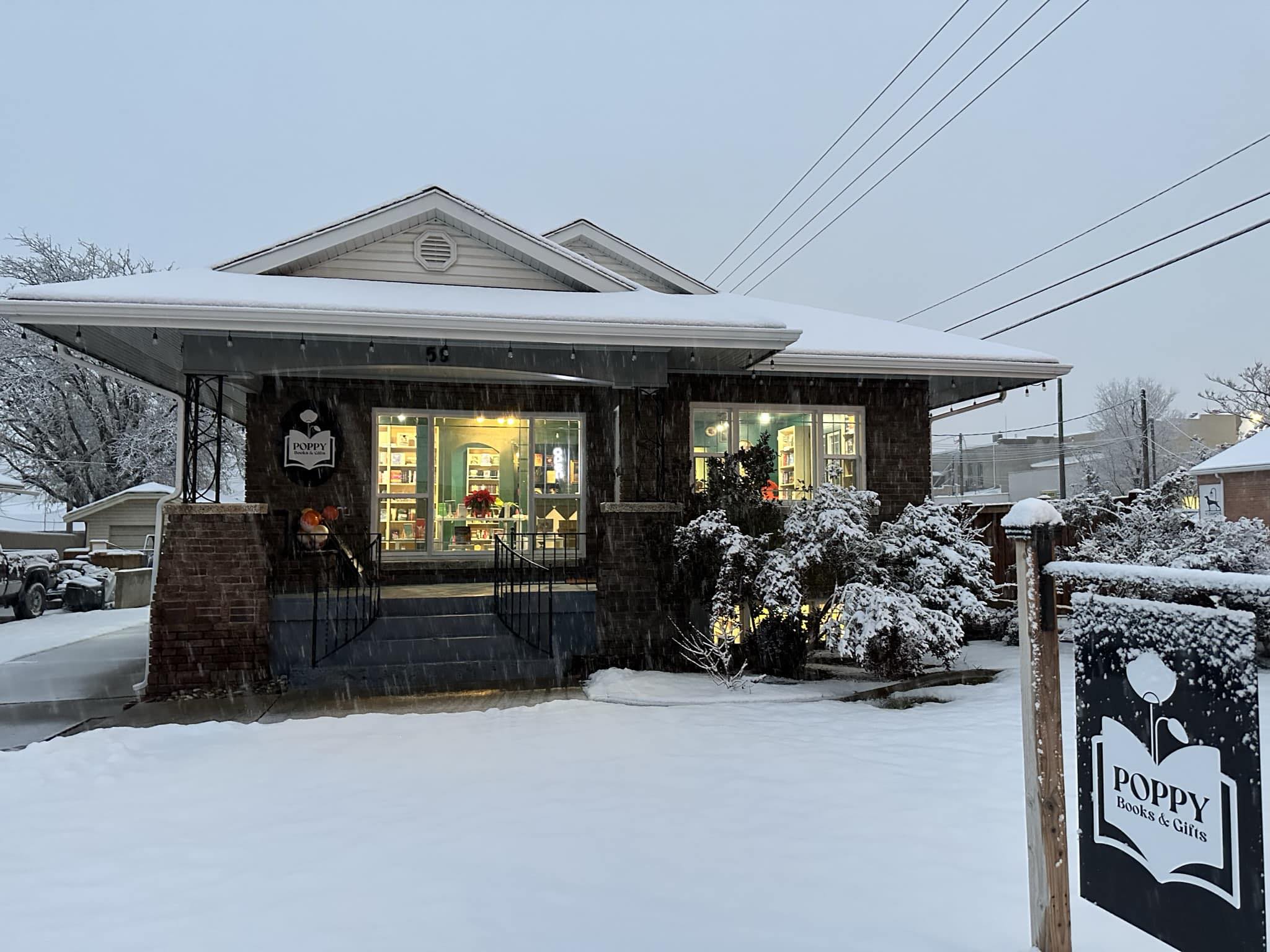

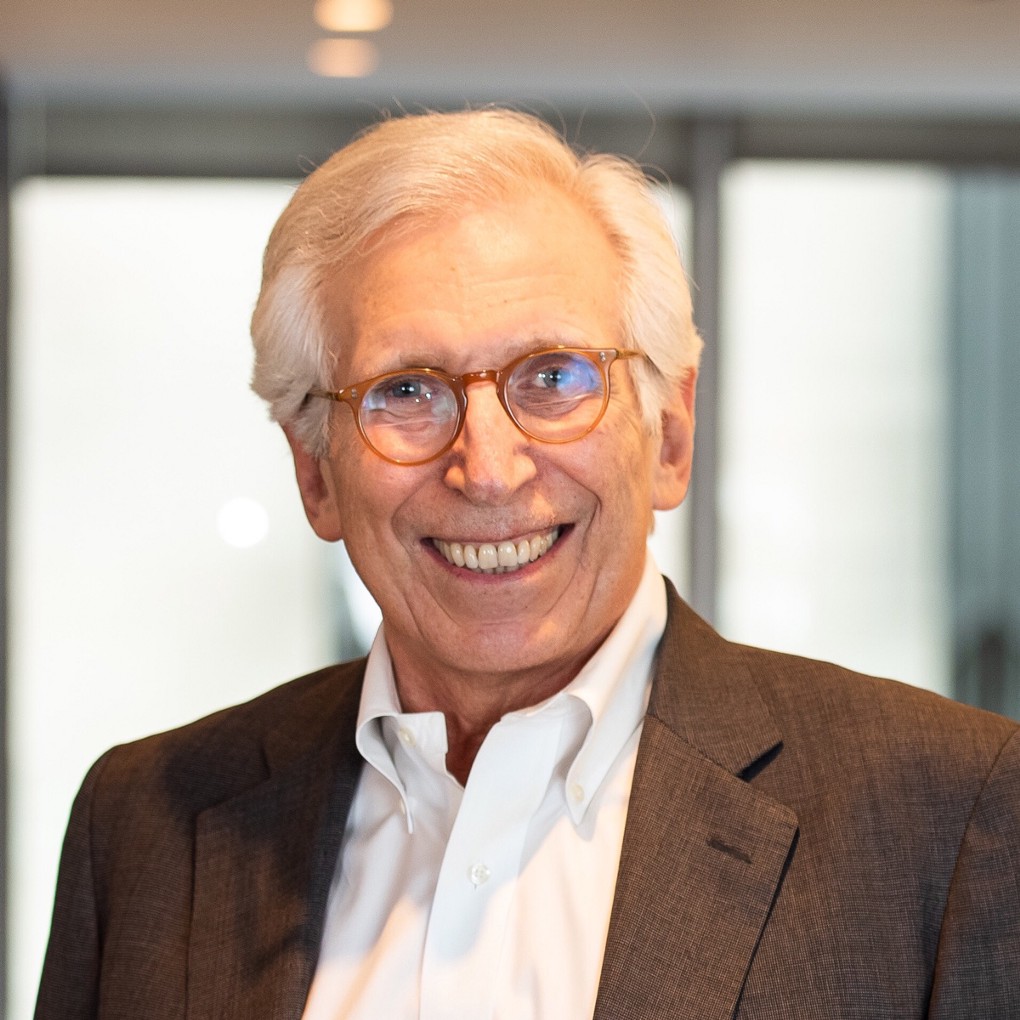

 "As a society we've gotten stuck in binary thinking. You're either racist or you're not. You're sexist or you're not," said Michelle MiJung Kim, author of The Wake Up: Closing the Gap Between Good Intentions and Real Change (Hachette Go). "But we all fall in the messy middle."
"As a society we've gotten stuck in binary thinking. You're either racist or you're not. You're sexist or you're not," said Michelle MiJung Kim, author of The Wake Up: Closing the Gap Between Good Intentions and Real Change (Hachette Go). "But we all fall in the messy middle."
IPC.0211.T4.INDIEPRESSMONTH.gif)
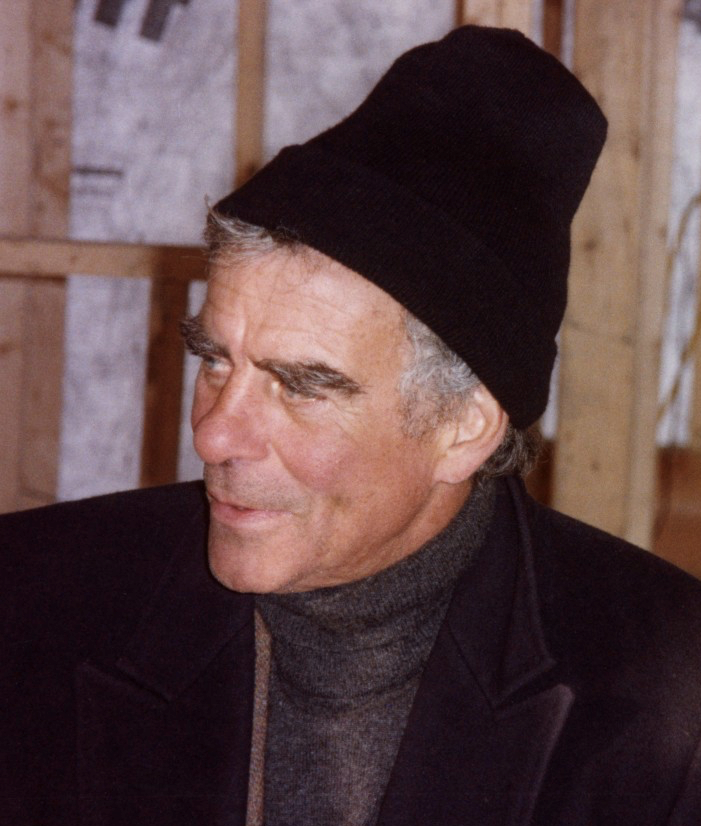
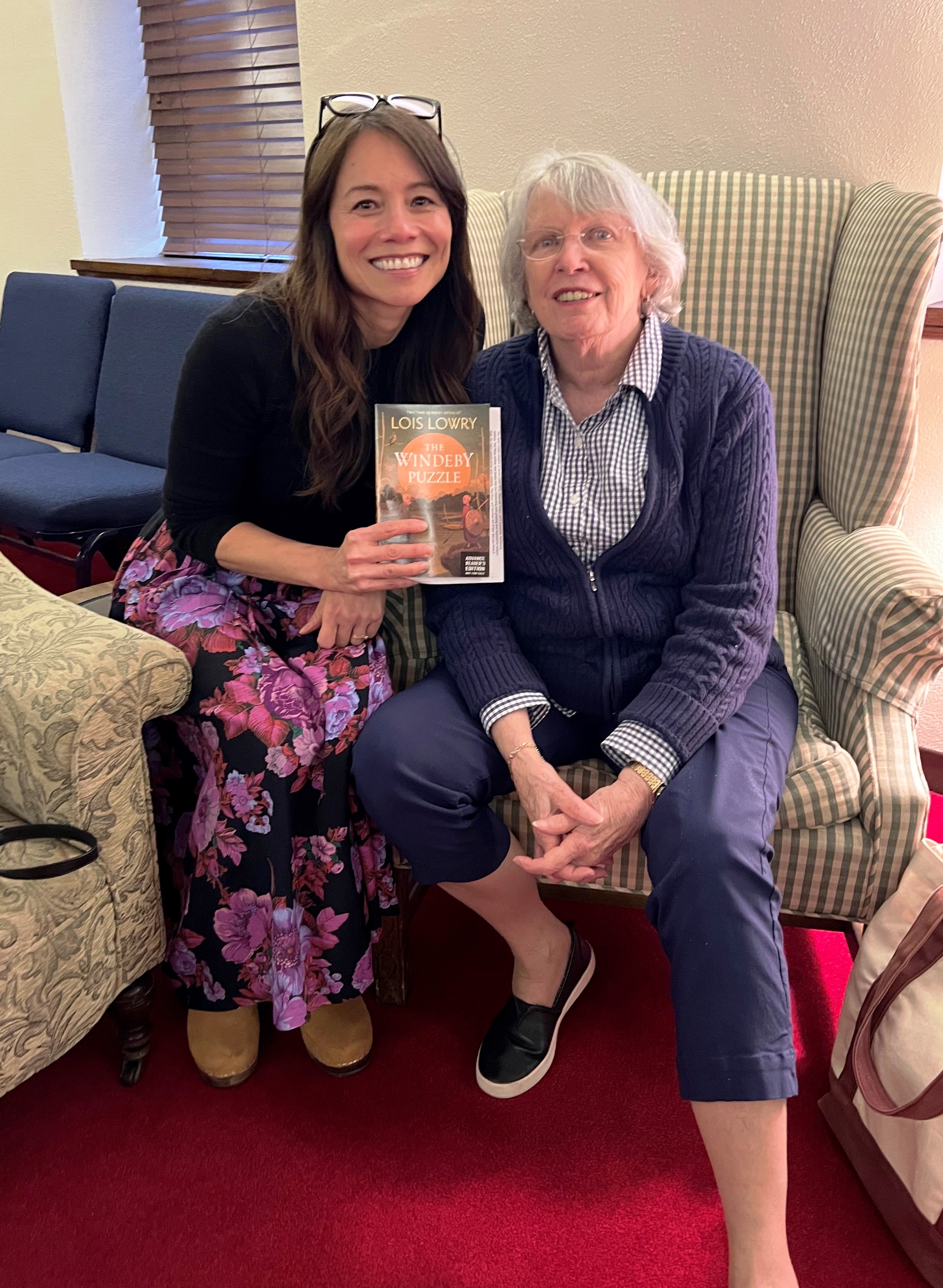

 "We're trying out a new thing,"
"We're trying out a new thing," 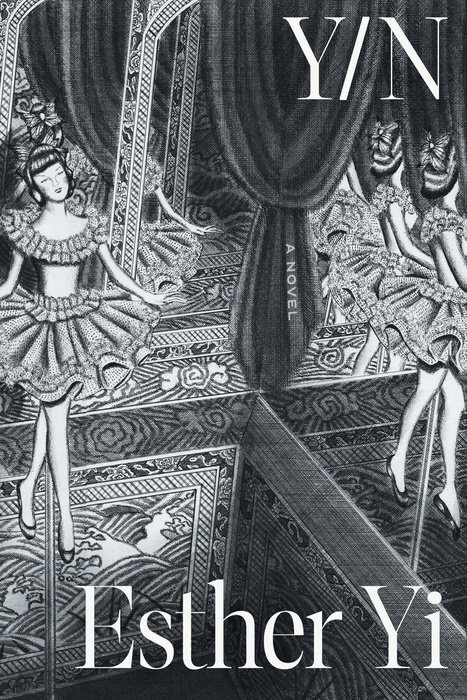 In her hypnotic debut novel, Y/N, Esther Yi shrewdly manages both to expose and celebrate the effects of South Korean pop-culture domination, with brilliantly placed jabs at Korean transracial adoption, cosmetic surgery and the wellness industry. "Gangnam Style" was the first video to surpass a billion views on YouTube. The streaming series Squid Games and, more recently, Extraordinary Attorney Woo set all manner of international watching records. Time magazine named Blackpink 2022 Entertainer of the Year. BTS remains ubiquitous. Hallyu--the Korean wave--shows no signs of diminishing.
In her hypnotic debut novel, Y/N, Esther Yi shrewdly manages both to expose and celebrate the effects of South Korean pop-culture domination, with brilliantly placed jabs at Korean transracial adoption, cosmetic surgery and the wellness industry. "Gangnam Style" was the first video to surpass a billion views on YouTube. The streaming series Squid Games and, more recently, Extraordinary Attorney Woo set all manner of international watching records. Time magazine named Blackpink 2022 Entertainer of the Year. BTS remains ubiquitous. Hallyu--the Korean wave--shows no signs of diminishing.